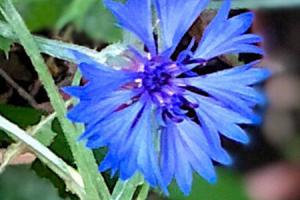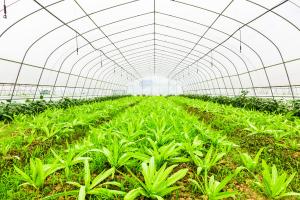Introduction
Saltwater has long been known to have a detrimental effect on plant growth. This is a significant concern for agricultural and horticultural industries, as well as for individuals who want to grow plants in their homes or gardens. In this article, we will explore why saltwater affects plant growth and what can be done to mitigate its negative impact.
The Science Behind Saltwater and Plant Growth
When plants are exposed to too much salt, their absorption of water and nutrients is affected. In more technical terms, the salt creates an imbalance in the osmotic processes that are necessary for proper plant growth. This imbalance can cause irreparable damage to the plant's cells, tissues, and organs, leading to stunted growth or the plant's demise altogether.
One of the critical impacts of saltwater on plants is that it causes the roots to become dehydrated. This dehydration means that the plant is unable to absorb the water it needs for photosynthesis, the process by which plants convert sunlight into food. Without sufficient water, the plant is unable to produce the energy it needs to grow and thrive.
Can Saltwater be Used to Grow Plants?
While saltwater cannot be used to grow most plants, some species have adapted to living in these high-salt environments. These plants, called halophytes, have evolved to cope with the higher salt concentrations found in saline soil and water. However, these plants are relatively rare, and most crops require low-salt soil to grow successfully.
In some cases, plants can be grown in brackish or slightly salty water, such as in mangrove swamps. However, these conditions are very specific and require a unique ecosystem that is not easily replicated in most environments.
Reducing the Impact of Saltwater on Plants
While it may not be possible to grow most plants in saltwater, there are ways to reduce the negative impact of salt on plant growth. One approach is to dilute the saltwater with freshwater, creating a more balanced environment for the plant. This can be accomplished by adding freshwater to the soil around the plant or by watering the plant with a diluted saltwater solution.
Another option is to supplemental feed the plants with nutrients such as magnesium, calcium, and potassium, which can help to offset the nutrient imbalances caused by the high salt concentrations in the soil or water.
Certain plant species can also be grown in hydroponic systems, where nutrient solutions are used instead of soil. Hydroponic systems can be designed to control the salinity of the water used, allowing crops to be grown with a higher degree of precision and control.
Conclusion
Saltwater can have a significant negative impact on plant growth, but with the right knowledge and techniques, it is possible to grow plants in high-salt environments. Whether through dilution, nutrient supplementation, or hydroponic systems, there are many ways to mitigate the effects of saltwater on plants. Understanding the science behind saltwater and plant growth, as well as the ways to reduce its impact, can help farmers, gardeners, and homeowners grow healthier, more robust plants, even in saline environments.

 how many times do yo...
how many times do yo... how many planted tre...
how many planted tre... how many pine trees ...
how many pine trees ... how many pecan trees...
how many pecan trees... how many plants comp...
how many plants comp... how many plants can ...
how many plants can ... how many plants and ...
how many plants and ... how many pepper plan...
how many pepper plan...
































